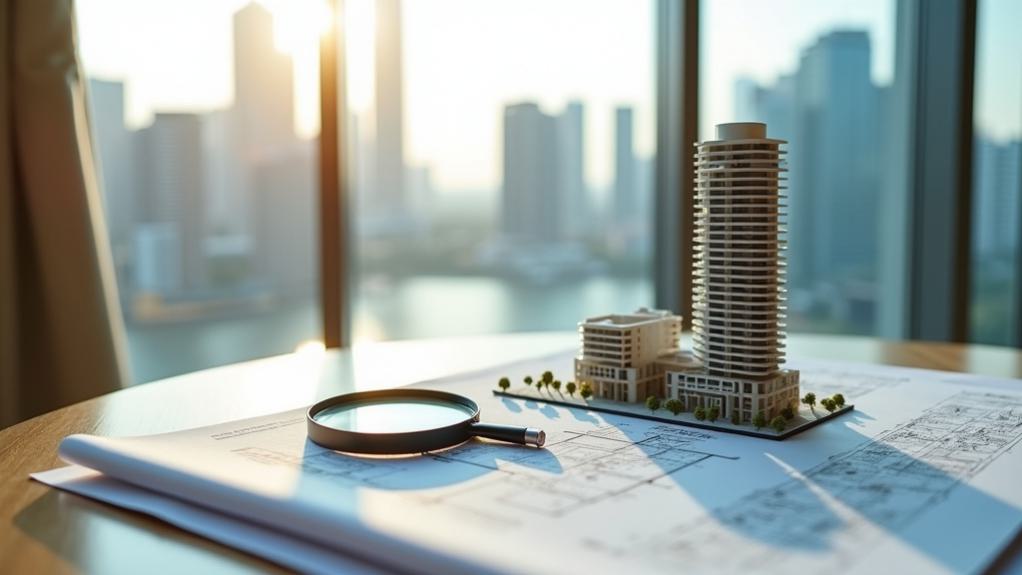When investing in Singapore’s competitive real estate market, conducting thorough due diligence on property developers stands as an essential prerequisite for mitigating investment risks. First-time condominium purchasers must verify that developers possess valid Housing Developer’s Licenses under the Housing Development (Control and Licensing) Act, as this credential serves as the fundamental regulatory requirement for all legitimate property development entities in Singapore. Buyers should verify that developers of projects with more than four residential units maintain mandatory licensing requirements.
Due diligence on developers isn’t optional—it’s the protective foundation for every prudent Singapore property investment.
Evaluating financial stability constitutes a critical component of developer assessment. Prospective buyers should examine audited financial statements, which developers are required to submit as part of their licensing process, to determine sufficient capitalization for project completion. Developers with recent insolvency issues or leadership bankruptcy records may present heightened investment hazards, particularly for pre-construction purchases where delivery timelines extend several years into the future.
Track record analysis provides quantifiable metrics regarding developer reliability. Examining previously completed residential projects offers insight into construction quality, adherence to promised timelines, and post-handover support. Developers with substantial operational histories in Singapore generally demonstrate greater regulatory familiarity and typically qualify for exemptions from certain Qualifying Certificate requirements under the Residential Property Act. Robust customer due diligence procedures help prevent money laundering activities in property transactions across jurisdictions.
Corporate structure review reveals important indicators of developer stability. Singapore-incorporated companies with significant local shareholding and citizen representation on their boards frequently demonstrate stronger commitment to domestic market reputation and regulatory compliance. These structural elements also facilitate regulatory exemptions that can positively impact development costs and timelines.
Project feasibility documentation, including architectural plans, engineering assessments, and sustainability certifications, should undergo scrutiny for alignment with marketed promises. Developers pursuing Green Mark Certification demonstrate commitment to environmental standards, which increasingly influence property valuation in Singapore’s eco-conscious market. Before committing to a purchase, buyers should request to see the floor plan to better understand the property layout and potential functional issues.
Communication transparency manifests through exhaustive disclosure of company registration details, project specifications, and accessible customer support channels. Developers maintaining clear communication regarding construction progress, potential delays, and modification plans typically demonstrate professional integrity that extends throughout the development process.





